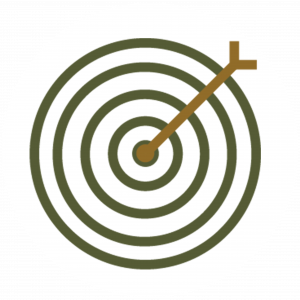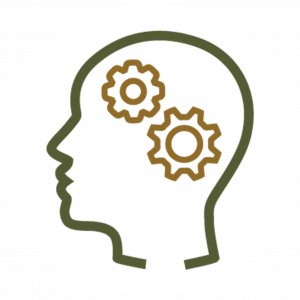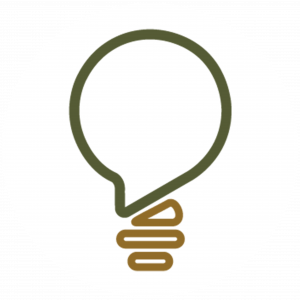Week 7: Studying Theory and Linking it to Practice
LOC 7: Describe one or more active teaching and learning theories that are relevant to low-tech, no-tech teaching and learning environments
Learning Objectives
By the end of this week, participants will be able to:
- 7.1 – Read literature/watch videos on adult learning theories and decide which theories are most relevant to adult learners with low-tech skills or no-tech access
- 7.2 – Demonstrate ability to reflect on their own learning by writing a one-minute paper for each theory
Materials Needed This Week
Here is a list of materials you will need while completing this week:
- Writing utensils
- Highlighters
- Ruler
- Sticky Notes
- Dictionary/Glossary booklet
- Handwritten Wisdom Journal

- Blank paper
- Computer/laptop
Key Terms
Add these key terms to your personal dictionary/glossary booklet. These important key terms will be used throughout module 2, week 7. If there is no link attached to the definition, be assured that the term will be defined throughout the week. We encourage you to further investigate the definitions in order to expand your knowledge.
- Learning theories
- Andragogy
- Humanism
- Behaviorism
- Cognition
- Social Cognitive Theory
- Constructivism
- Experiential learning
- Self-Directed Learning (SDL)
- Transformative learning
- Project-Based Learning (PBL)
 Questions to Consider
Questions to Consider
1. What is Andragogy?
2. Why is it important to categorize or distinguish adult learning theories from one another?
3. What theory do you relate to in your own practice?

“Learning is the process whereby knowledge is created through the transformation of experience.” — David A. Kolb
 Review
Review
Consult the following resources and interpret the necessary information with your preferred method of note-taking.
Adult Learning theories are the foundation to understanding how an adult is motivated to learn and use their life experience and knowledge that is based on life experience.
Adult Learning theories provide explanations of what happens when learning takes place. The theories give the educator a broader perspective on the learning behaviour of their students which in turn allows them to understand, create, and deliver meaningful lessons.
Andragogy – Developed by Malcolm Knowles in 1968, andragogy is described by its creator as the art and science of helping adults learn.
Four principles of the andragogic (or andragogical) approach:
1. Adults learn better from experience (even if they make mistakes).
2. Adults favor a pragmatic approach and must be able to apply learning to solve a specific problem.
3. Adults are most interested in learning things that have immediate relevance.
4. Adults need to be involved in the planning and evaluation of their instruction.
 Identify
Identify
Humanism: Originally drawn from the 1950s philosophy of humanism, Maslow’s (1970) approach is self-actualization, and Rogers’ (1983) is to become a fully functioning person.
Video: Maslow’s Hierarchy of Needs (2:47)
Click here for a video transcript in .docx format: Video Transcript
Behaviorism: Founded by Watson in the 1920s and developed into a theory by B.F. Skinner, behaviorists believe that human behaviour is the result of the arrangement of particular stimuli in the environment. If this behaviour is reinforced or rewarded, it is likely to continue; if it is not, it is likely to disappear.
Video: Watson’s Theory on Behaviorism (5:49)
Click here for a video transcript in .docx format: Video Transcript
Cognition: Piaget’s 1972 is considered the pioneer in this area. Cognitivists focus on insight, information, processing, problem-solving, memory, and the brain.
Video: Piaget’s Theory of Cognitive Development (6:55)
Click here for a video transcript in .docx format: Video Transcript
Social Cognitive Theory: This theory is particularly important and relevant to adult learning. This theory highlights the idea that learning takes place in a social setting. Adults cognitively process the information as they learn, as well as they are observing others and their behaviours and learning by replicating these behaviours.
Video: Social Cognitive Theory (2:05)
Click here for a video transcript in .docx format: Video Transcript
Constructivism: 1978s Vygotsky draws attention to the importance of how people construct meaning from their experiences through culture and language.
Video: Vygotsky’s Theory of Cognitive Development in Social Relationships (5:08)
Click here for a video transcript in .docx format: Video Transcript
Here are some extra theories in adult learning. You can further develop your research skills and learn more about them on your own:
- Experiential learning
- Self-Directed Learning (SDL)
- Transformative learning
- Project-Based Learning (PBL)
 Develop
Develop
Now that you have reviewed and learned about all the adult learning theories, practice your note-taking skills to make notes for each theory. Using one of the note-taking strategies you learned from Module 2: Week 6, write a one-minute paper for each theory in your notebook or on a blank piece of paper. Keep track of the theories with the fillable or printable PDF checklist provided.
Traditional Learning Theories Checklist (PDF)
 Apply
Apply
Task
Think about the way you have conducted reviews of your notes in the past. Answer the following questions by checking off the answer that relates most to you. There are no correct answers:
Clarify your intentions: Write a short Intention Statement about what you plan to get from the class. Describe your intended level of participation, or the quality of attention you will bring to the subject. Be specific. Write down things you intend to do to make your notes from this class session more useful.
Use Keywords: Keywords or phrases contain the essence of communication. Keywords are laden with associations. They evoke images. Draw the images, they trigger your memory. That makes them powerful review tools. One keyword can initial the recall of a whole cluster of ideas. A few keywords can form a chain from which you can reconstruct an entire lecture.
 Take Away Toolbox
Take Away Toolbox
 Reflect
Reflect
 Handwritten Wisdom Journal
Handwritten Wisdom Journal
A Wisdom Writing Journal is a way to notarize your learning journey throughout the weeks during all the modules in this course. It will also permit you to demonstrate that no technology is required to focus on reflective practice. There is a variety of writing journal tools that you can choose from that require technology, however, throughout this course, it is important that you experience and model a no-technology required method in order to relate to those students that have limited or no access to technology.
Take advantage of jotting down your thoughts, frustrations, joys, aha moments, and new information acquired as the result of your hard work. Critical reflection time required at the end of each week will be a culminating result of YOUR own personal Learning Narrative.
Using your own personal writing journal, write an entry for this week’s prompts:
- How many adult learning theories were you aware of?
- Can you relate to an existing theory for you or for your adult learners with low-tech skills or no tech access? If so, which one and why?
- Will this change your delivery of strategies? Explain how by using examples.
- Based on the information that you have learned this week, how would you review, identify, develop, apply, and reflect?
Note: Be sure to justify each of your answers or comments.
Optional Resources
These resources are not required to be viewed; however, they give further information on this week’s topics:
- Adult Learning Theories – Valamis (article)
- What is Adult Learning Theory? (article)
- Learning Theories: Understanding the 4 Major Ones for the Classroom (article)
- Major theories and models of learning – Lumen Learning (module)
- Humanistic Theory – Khan Academy (video)
- Deficiency-Growth Theory: Maslow’s Hierarchy of Needs (article and video)
- Cognitive Development (article and video)
- Behavioural Theory – Khan Academy (video)
- Psychological Constructivism: Piaget’s Theories – Lumen Learning (module)
- Observational learning: Bobo doll experiment and social cognitive theory – Khan Academy (video)
- Social Constructivism: Vygotsky’s Theory – Lumen Learning (module)

